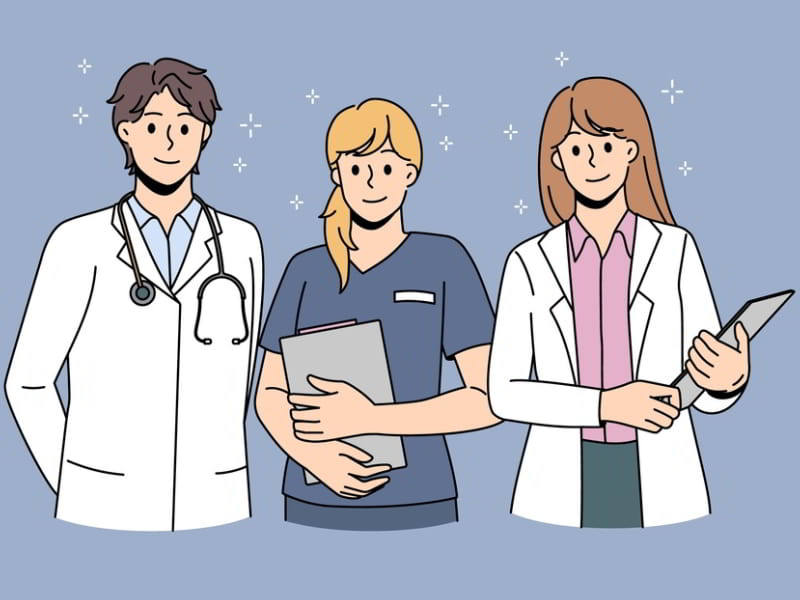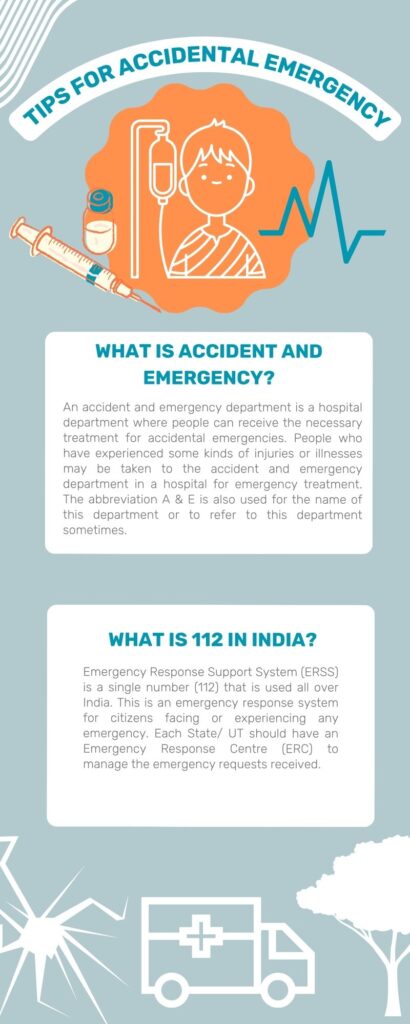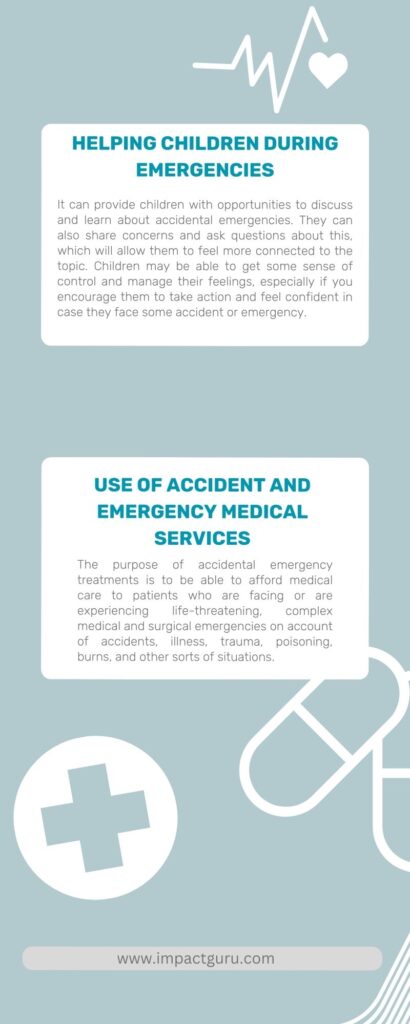There may be different kinds of medical and health-related scenarios that people may face. An accidental Emergency is a kind of traumatic injury that can cause harm to a person’s body. If this kind of injury is not immediately diagnosed and treated, it could seriously affect a person’s health and result in loss of life. Stay informed about these issues that anyone may face and try to comprehend how one would address them. You will have a smoother medical journey when you are aware of the medical problems you are experiencing, the treatments for them, and other relevant things. This will allow you to feel much more at ease and address your health in the appropriate way or manner. When it comes to an accidental emergency, it can be helpful to be aware of what it is, accidental outpatient treatment, and more.
Table of Contents
- What Is an Accidental Emergency?
- Understanding What An Emergency Situation Is
- What Is Emergency Accidental Outpatient Treatment?
- Why Can Accidental Emergency Treatment Lead to More Problems?
- How Shall A Person Approach An Emergency?
- What Is An Emergency Referred To In A Hospital?
- What Questions Can I Ask My Doctor?
- Conclusion
What Is an Accidental Emergency?

A person may want to understand what an accidental emergency means. An accidental emergency is a kind of bodily injury that can sometimes be traumatic for the person, their body, and in other ways. If this kind of injury or health situation is not immediately diagnosed and treated correctly, it could seriously affect a person’s health or result in loss of life. You must try to cooperate with your doctor or medical paraprofessional and undergo the necessary treatment as soon as you can.
You can ask your doctor about accidental emergencies and the best approach. Some websites and search professionals will also be able to provide you with information and expand on what accidental emergencies are. You can also read about accidental emergencies in offline resources such as books, magazines, medical brochures, and more.
Understanding What An Emergency Situation Is
One may want to understand what an emergency means. An emergency is a kind of urgent, unexpected, and usually dangerous situation that a person may face due to unforeseen circumstances. This situation can often pose an immediate risk to health, life, property, or even the person’s surroundings. This situation where the person is facing some kind of emergency requires them to take the necessary approach and action to face as little of an issue because of this emergency as possible.
What Is Emergency Accidental Outpatient Treatment?
The primary purpose of providing a person with retirement for emergency and accident outpatient treatment is to help them address acute, sudden, and unforeseen medical and accident emergencies. An acute pain or illness is some kind of injury that causes pain or the feeling of being unwell. It can quickly become very severe and lead to a lot of distress, especially if it is not treated and addressed correctly and in the right way or manner. The kind of emergency accidental outpatient treatment that will be afforded to you or given to you by your doctor or medical professional will depend on different factors. The factors that can affect this kind of treatment that you get to avail can depend on your state of health at the time, the medical opinion of the doctor or medical professional that is overlooking your treatment, or that you are consulting at the time, the kinds of treatments that are available at the time, the kind of hospital or medical facility that you have come to for your treatment and more.
You may wish to know more about emergency accidental outpatient treatment. You can approach or contact your doctor or a suitable medical professional who is considered suitable or appropriate to advise you about the same, and they will be able to offer you the necessary information about or relating to emergency accidental outpatient treatment. You can learn more about emergency accidental outpatient treatment online as well. There may be sources on the internet that you could visit that provide you with the necessary information about emergency accidental outpatient treatment. You could search for these sources using a search engine, which will be able to offer you the necessary information about emergency accidental outpatient treatment. Offline resources such as books, medical magazines, medical brochures, etc., can also help learn and find out about emergency accidental outpatient treatment.
Why Can Accidental Emergency Treatment Lead to More Problems?
The decisions that are taken during an accidental emergency may be critical. Doctors and medical professionals may often be forced to make swift and crucial decisions in a somewhat robotic way or manner. Fast decisions on life-and-death cases can seriously affect people in emergency departments, and the right decision must be made. They will not because the doctors feel significant pressure to overtest and overtreat. Doctors may often worry about a wrong diagnosis or treating their patients wrongly, which is why they may advise doing extra blood tests and imaging scans for what may be harmless chest pains, run-of-the-mill head bumps, and non-threatening stomach aches, with a high cost on the health care system and repercussion for the patient that is simply following what they believe to be expert advice. It is good to have trust in our doctors, but urgent care that needs to be provided to patients can lead to some critical errors that can significantly impact the patient and sometimes even lead to death.
How Shall A Person Approach An Emergency?
Proper emergency management or management of emergencies can help you. There are some ways in which your approach to the health problem that you’re facing can help you. This may even be instrumental in saving your life and can be critical to know about and follow wherever you face any emergency. To not suffer due to the mercy or urgent situation you are facing, there are some sorts of things you can do that will benefit you and be an advantage in the situation to the problem you seem to be facing.
Some things that you could do in an emergency are the following:
- To try and prevent the accidental emergency from arising p, prevention is better than the cure or dealing with the emergency later.
- Proper steps must be taken for the migration of the circumstances that could color; mitigation means shrinking or minimizing the risk of loss that one would expect from the occurrence of any event that is not desired by the person to take place or occur.
- Try to be prepared for any emergency that could impact your health and well-being.
- Respond to your health situation and accidental emergency quickly.
- Try to take all the necessary steps to recover, and you may be advised by your doctor or medical professional.
- Stay or keep level-headed.
- Tru and go to a hospital or medical facility as soon as possible to be treated or have a doctor or medical professional look at your health condition.
You must take the proper steps when dealing with any accidental emergency. Proper management will allow you to have the most minor opposing problems and issues. Suppose you do not approach an accidental emergency properly. In that case, you may have to deal with a worse health or medical situation and may need more rigorous treatment and medical care, which can be more expensive. The person may also face more issues if they do not have the right approach to their health and the situation during an accidental emergency.
What Is An Emergency Referred To In A Hospital?
A person taught is facing some kind of accidental emergency and must be aware that an emergency may be referred to by different names or as different things in a hospital. An emergency department (ED) can also be called an accident and emergency department (A&E), emergency room (ER), emergency ward (EW), or casualty department. This department in a medical treatment facility or hospital may specialize in emergency medicine, offering people whatever assistance they may need or require in an urgent or emergency they are facing. The patients may be offered the necessary treatment and care and will often be given this without a prior appointment that they may take themselves, or someone may take for them.
The patient facing an accidental emergency or an urgent medical issue or problem can go to the hospital or medical facility that provides urgent care at any time. Due to the unplanned nature of the attendance of the patient here at the hospital or the medical facility, the department should have and be equipped with the necessary facilities and things that are necessary to be able to provide initial treatment for different kinds of illnesses and injuries, some of which may pose as a threat to the life of the person and will need quick assistance from a doctor or a medical professional at the hospital or medical faculty. In some countries, emergency departments are crucial points for people who do not have any other means of access and can get or avail the necessary medical care to address their medical needs. The emergency departments at many hospitals in the country offer services to patients 24 hours a day. However, the staff level can change to reflect the volume of patients coming to the hospital at a particular time.
What Questions Can I Ask My Doctor?
Questions can play an essential role in treating a person or patient. Your doctor can provide you with the necessary guidance about the health and medical problems that you are facing. They can offer you more than your treatment, and availing this guidance is a good idea. For the best results from your treatment, it would be advisable that you follow the guidance that is given to you by your doctor so that you can enjoy more benefits from your treatment, which will allow you to have a better quality of life and not face any more health-related issues or complications.
Some questions that you could ask your doctor or medical professional are:
- What does the prognosis of my health look like?
- How long would IT take to feel normal after my accidental emergency treatment?
- Are there any home remedies for the issues that I am facing?
- What medications will I be given?
- What kinds of procedures will I have to go through?
- Am I facing severe health issues, or are the problems not so serious?
- What kinds of measures can people around me take to help me with my medical issue?
- What medical facility or hospital has the best emergency accidental outpatient treatment?
- Who can I get a second opinion about my health if I need it?
- Will I need to be admitted to the hospital if my state of health does not improve?
- What should I do if I experience some medical problems when I am not at the hospital or medical faculty where I am currently receiving or undergoing my treatment at the time?
- What should I do in case I am facing or experiencing an accidental emergency but am not near a hospital or medical facility at the time?
It must be noted that the above questions may only cover some of the questions you could ask your doctor about your state of health regarding accidental emergencies. However, the above questions may provide suitable suggestions and what you could do to approach your health. Suppose you have faced any situation or are facing any sudden medical emergency and require medical assistance or guidance. In that case, your doctor will be able to help out with the same.
Conclusion
To conclude, there are many essential aspects relating to accidental emergencies. Accidents must not be taken lightly, and it will always help to keep informed rather than look the other way towards this. The better you understand this, the better you will be able to deal with such issues when you have to face them suddenly and deal with them head-on. Accidental emergencies must not be taken lightly; the patient must know what will happen to them or what to do in emergencies since these can sometimes lead to death. This is why knowing about emergencies, accidental outpatient treatment, and more is good. Your health is essential, and the necessary treatment is also important. An accidental emergency must not be taken lightly; the proper steps must be taken for the best possible results and outcomes.














